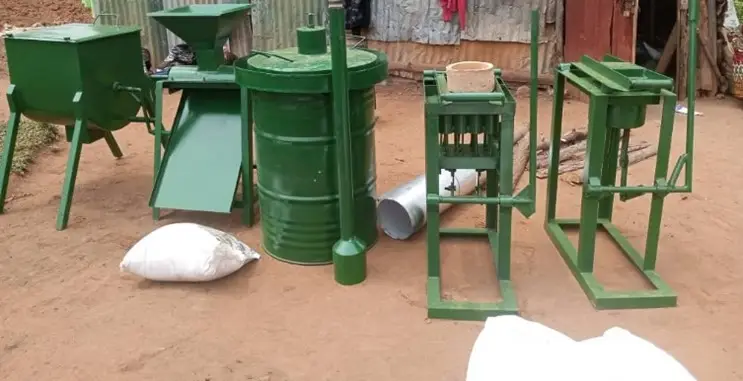Let’s Change My Village (LCM) is more than just an organization—it is a movement of people united by love for their land, their community, and their future. Rooted in Uganda, LCM empowers rural communities to embrace sustainable farming practices that go beyond feeding families. Our work restores ecosystems, protects the environment, and builds a foundation for lasting prosperity. Together, we are transforming villages into models of resilience, sustainability, and hope.
Our Vision
Highly productive agro-ecological prosperous villages.
Our Mission
Empower communities to rebuild their livelihoods sustainably using their natural resources.
Our core values
Community Empowerment, Innovation and Learning, Integrity and Accountability, and Collaboration.
Our Pathways
Enhance farmer managed seed systems among small holder farmers and Promote quality value chains through participatory guarantee system.
Who we are
Let’s Change My Village (LCM) was established in 2019 as a Community Based Organization (CBO), registered with Rukiga District Local Government. IT has a membership of over 500 members comprised of 5 major groups. The CBO has worked with a number of partners and collaborators such as Ministry of Agriculture, PELUM Uganda, Tree Talk Uganda, Slow Food Uganda, Rukiga District Local Government to mention but a few. Our vision of creating highly productive, agro-ecological, and prosperous villages will be achieved by promoting cultural farming practices that support heritage tourism, training and demonstrating practical agroecological principles, strengthening farmer-managed seed systems for smallholder farmers, fostering quality value chains through participatory guarantee systems, and advancing low-cost, sustainable watershed restoration techniques.
Our Pathways
Designing Agroecological farms
- Diversification on farm crop production
- Kitchen/backyard gardens
- Restoring household food security crops
- Adopt vertical farming in small spaces
- Integrating both annual and Peri-annual crops on the same farm
Soil fertility and water conservation
• Integrating confined animals for manure production
• Compositing
• Domestication of liquid manure plants
• Crop rotation
• Construction of water conservation technologies
• Mulching
Multiplication of indigenous seed and post-harvest management
• Promotion of indigenous food for nutrition security
• Intensification of indigenous seed multiplication
• Farmer-managed seed multiplication
• Community indigenous seed bank
Watershed management
- Assessment and Mobilization of stakeholders
- Treatments on the watershed (Continuous contour trenches (CCT), Absorption trenches, Check dams, Stone bands, Recharge dams, Recharge pits)
- Tree nursery development for indigenous species and agroforestry trees
- Watershed enterprises such as beekeeping
- Production of energy saving stoves and clean biomass fuels
- Farmer managed natural regeneration
Fish farming (establishment and maintenance of fish ponds)
• Pond Construction and Maintenance
• Fish Species Selection and Stocking
• Feeding and Management
• Harvesting and Post-Harvest Handling
• Pond Ecosystem Management
• Nutrient Recycling
• Food Security and Nutrition
• Water Management
Designing Agroecological farms
Our effort is to educate farmers to encoperate the principles and elements of agroecology when designing the farms.
Technical advice on watershed management
We engage the community in deploying a comprehensive approach to managing land and water resources …..
Appropriate energy conservation
LCM is also promoting clean cooking technologies such as improved biomass stoves and briquette production at local level.







